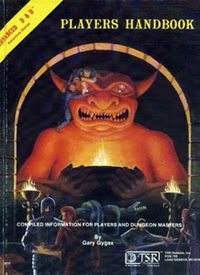 A few weeks ago,The Snows of Summer, by Paizo Publishing came out. It contains what will probably be the last piece work I’ll do for the RPG industry for quite a while. It makes me sad, but I need to concentrate on my novels. Writing without direction, doing what you really want to do, is the only path to true satisfaction for a writer.
A few weeks ago,The Snows of Summer, by Paizo Publishing came out. It contains what will probably be the last piece work I’ll do for the RPG industry for quite a while. It makes me sad, but I need to concentrate on my novels. Writing without direction, doing what you really want to do, is the only path to true satisfaction for a writer.
This post, once again, comes from a tumblr ask. A follower asked me, “What has been the most useful book in your magical learning? What has been the most useful book in your life?”
I’m going to surprise you a little here. To find my answer about a useful magical book, you’ll have to follow my tumbr. I’m going to answer the other question here. It requires a lot more explanation.
Laugh if you want, the most useful book in my life has been, The Player’s Handbook by Gary Gygax . For you uninitiated, that’s the first rule book for the game Dungeons & Dragons.
Through the game, I’ve met the most important people in my life. I’ve met my closest friends through the game. Those who I met outside the game, I taught the game and made them better friends. The game is always the excuse to gather, laugh, tell stories. It brings us together in ways modern media fails. We aren’t just passive spectators. We do it together, for each other. We create.
My wife, my entire marriage, the greatest thing that I have ever done. I owe it to the game.
People who play RPGs can be defensive, for good reason. They are often maligned as a starter drug for magick, devil worship, and other unsavory practices. Most players try to distance themselves from such claims, and for most of them, it’s true. They don’t feel a need to explore alternative spiritual paths.
But if you say there’s no connection, you’re a liar. Mr. Gygax presents a wealth of information on mythology, correspondences, and magical practices, wrapped up in the game. It’s not the point of the game. It certainly wasn’t his intention to turn players into pagans. But it’s there for any who want to see. I didn’t learn magick from Dungeon’s & Dragons, but I learned a lot about what’s in magick.
It’s fair to say, I learned some skills for magick from the game. Math, note taking, construction of dramatic storytelling, things that serve a magician well. When you’re doing it right, you seem to channel the personas that you’re portraying.
Of course, it’s in how you approach it. If you come to a gaming table looking to roll dice and add levels, game the system, that’s what you’ll get out of it. I think, however, like many things in life, you only discover the true value when start asking why? Why do I play this game? What do I enjoy about it? Why does it change how I feel about myself and others? Where does the background information in the game come from? When you look deeper, you find the connections, to magick, to the Great Work, to everything. The microcosm of the game, can reflect the macrocosm of your psyche. As above, so below.
I’m not ashamed to be a gamer geek. In fact, I have a podcast about that too. I’m not ashamed to say it influences my magick, even though my magick is not a game.